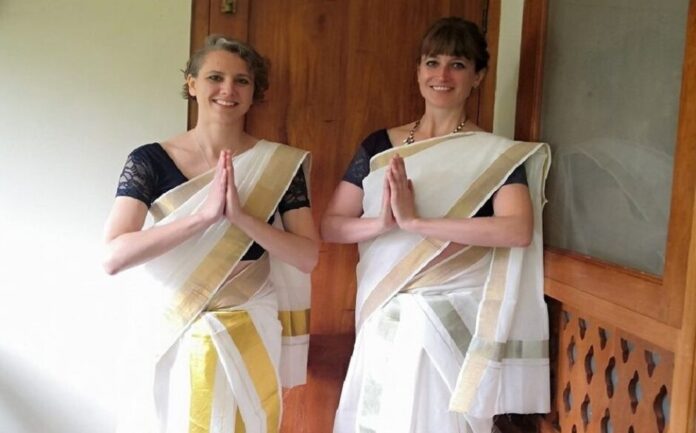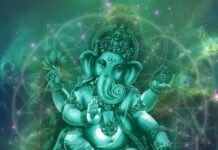The Western descriptions of India in scholarship, early travelers, media, and movie depictions like Indiana Jones have mostly been problematic. Many of such descriptions stand today as ‘common sense’ even to many Indians, creating a blockade to access their own past. The problems with colonial narratives and orientalist descriptions are much discussed. Even the positive and sympathetic descriptions do not represent their native experiences. For instance, Max Müller himself has talked about ‘India, What Can it Teach Us? ’ Such sympathetic descriptions are also not out of the problems associated with colonial imaginations or orientalist descriptions. Hence, bringing the West while talking ‘positively’ about India may be considered almost impossible.
By Rohith Krishna
But there is one possibility to go ahead, if we include ancient Greeks in the category of ‘West’. Modern Europeans consider ancient Greeks to be their civilisational and genealogical ancestors. It is claimed that ‘modern’ concepts, whether rights, democracy, republic, have their Greek origin. However, ancient Greek descriptions of India are polar opposite to the modern European descriptions of India.
While for modern Europeans, India was a land of misrule, for ancient Greeks, it was a land of republicanism. For modern Europeans, India had a lot of immoral customs and was an in-egalitarian society, but ancient Greek descriptions of India spoke otherwise. In European descriptions, India was an exotic land of superstitions and odd practices, but the Greeks could see resonance of Indian traditions with theirs (same as today, many Hindu practices are found akin to many native traditions around the world). The contrast includes even subjects pertaining to caste, sati, slavery, poverty etc.
This polar opposition in opinion on India between ancient Greeks and the British, modern West should call for academic investigation.
What this calls for is to think on the following:-
- There is no chance to say that the Indian civilisation which the ancient Greeks and modern Europeans saw in their respective time periods were absolutely different. Of course, no traditions are stagnant; they revolve and change according to time. But India is known for its ‘living’ traditions and civilisational continuity.
- The claim that the ‘modern’ West inherited concepts from ancient Greek needs to be rethought. Arguably, the modern West (both secular and Christian) understood the Greek terminologies and ideas in its own way while inheriting its ancient legacy at the same time, after the decline of Greek civilisation.
- On the other hand, one can observe similarities between Islamic and European accounts of India, whereas European accounts stand inconsistent with ancient Greeks. This is despite the fact that modern Europe assumes its continuity from ancient Greek. This will problematise the category of ‘West’, which wrongly places ancient Greek, European legacy, Colonialism, and modern concepts under the same stream. However, the ‘Western’ descriptions of India have more to do with the non-Western Islamic descriptions of the same, and less with ancient Greek.
- Regardless of their pity or hostility towards Indian culture, there is a striking similarity between European (Christian and Secular) and Islamic understanding of India’s past and its traditions. This similarity makes sense by identifying the mutual thread of theological presumptions underlying both modern European and Islamic accounts.
- Therefore, if the ‘secular’ West wants to understand and experience India fairly like their ancestors (Greeks), and for India to understand their cultural relationship with ancient Greece, there is a mutual need to unpack the ‘secular’ notions that carry the baggage of deep theological assumptions.
(PS: Here, the word ‘Secular’ is used in the sense of a set of values and self-positioning that is claimed as ‘non-religious’ or post-religious, which is untouched by any religious influence. )
Capturing the above points compels us to construct a meta-theory of the Western theories. It is true that India or any culture could never invest centuries and large amounts of money in examining the West, as Western culture has explored the world, particularly India. If India has one major drawback, it is the need for more knowledge about Western Culture. This unfamiliarity amounts to a great vulnerability for Indian social sciences. Prof. Balagangadhara argues that one of the major impacts of colonial consciousness is that we have the false impression that we know about Western culture. This is to say, whatever we feel we know about Western culture is nothing but descriptions of what the West has spoken about itself.
Similarly, though Western scholarship generally believes it has moved away from the early colonial scholarship, its self-descriptions are based on what the colonial scholarship imparted to them. The contemporary West also has invested in developing programmes on post-colonial studies. Though post-colonial studies identified many early Western descriptions of non-Western societies as problematic, it has yet to develop a successful alternative to create a meta-theory of the West in social sciences. As a result, much of the early colonial descriptions by the West get reproduced even in the name of ‘Post-Colonialism’ in both explicit and implicit ways or consciously and unconsciously.
Therefore, developing a meta-theory of the Western culture is a prerequisite for understanding the native experience or the non-Western societies. Functionally, such a cognitive engagement cannot be restricted to humanities of India alone. In fact, one could argue that the contemporary West and global humanities suffer from the cognitive ailment of colonial consciousness. In that sense, the West perhaps requires more ‘decolonisation’ than India requires it. This will provide room for the contemporary West to be consistent with their own ancestors that is ancient Greeks. It will enable them to understand why ancient Greek society understood and engaged with India better, in contrast to Colonial and Post-Colonial understandings of India.
This article first appeared in www.vifindia.org and it belongs to them.








